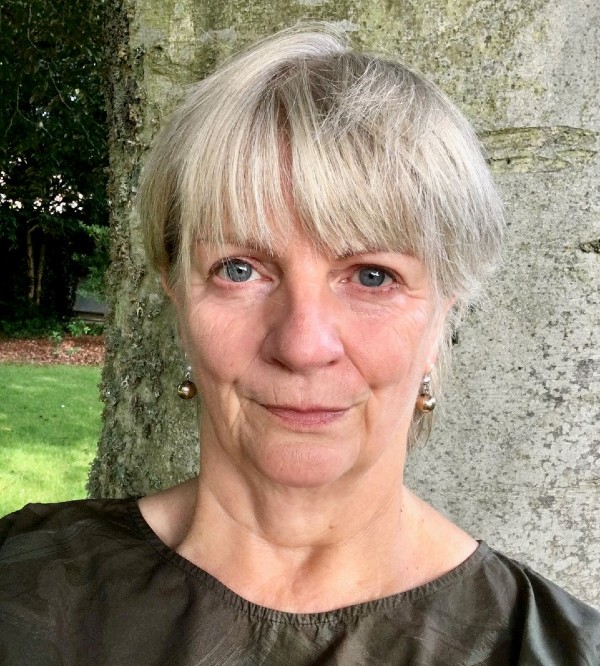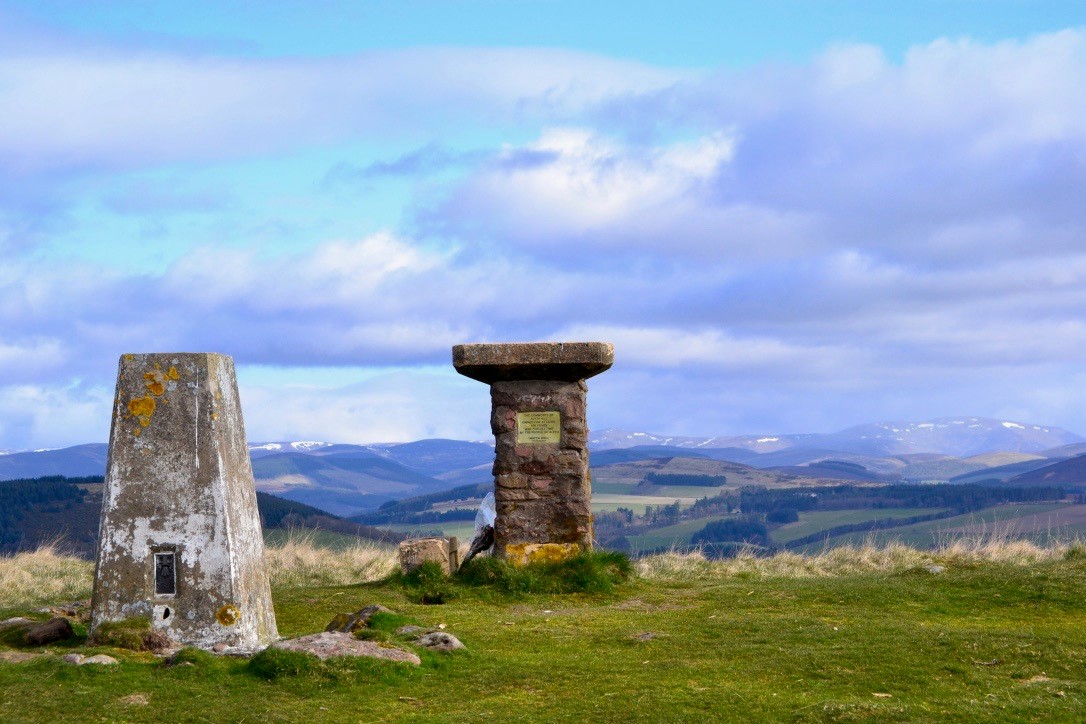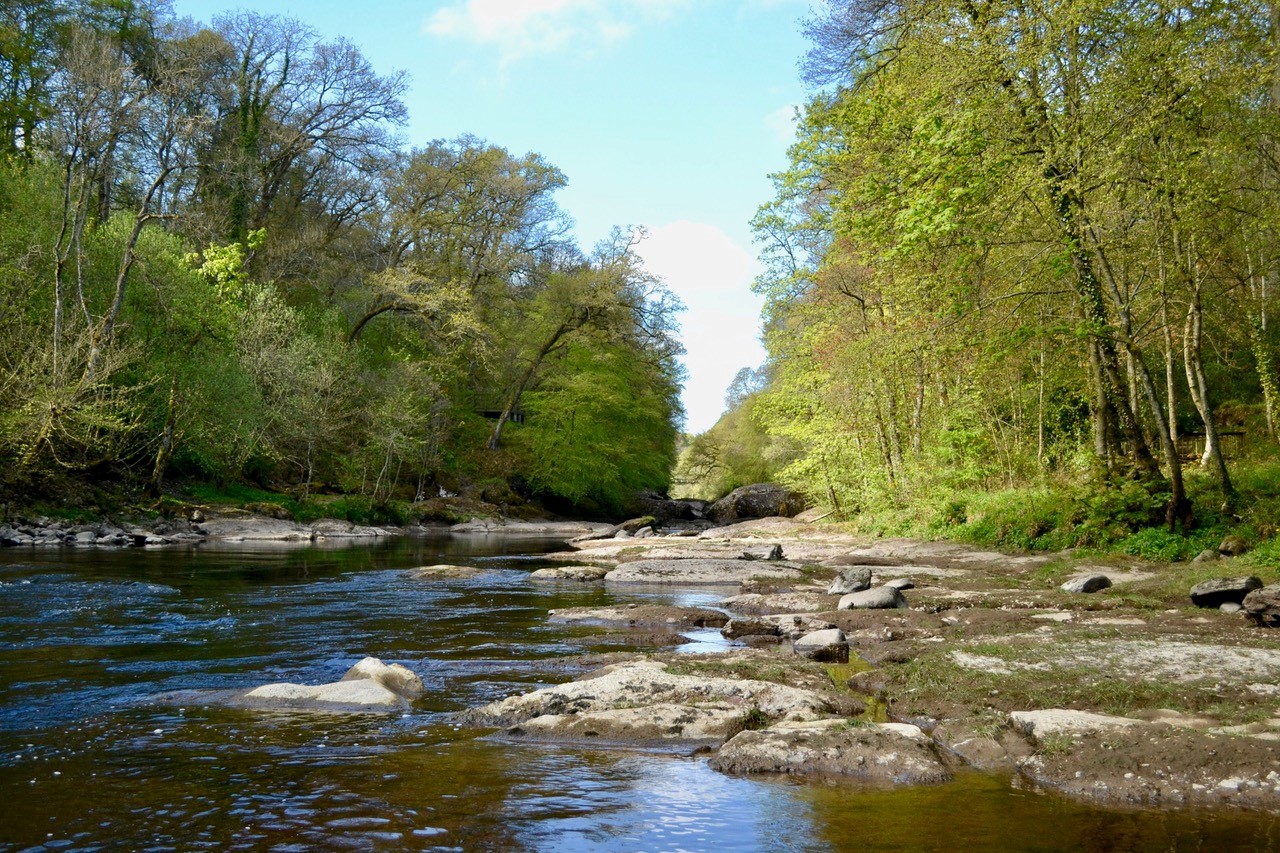Gender equality for a sustainable tomorrow

To celebrate International Women’s Day with this year’s theme ‘Gender equality today for a sustainable tomorrow’, we talked to Clare Cooper, the co-initiator of Bioregioning Tayside – one of the first bioregional initiatives in Scotland responding to the climate and biodiversity crises. Their Inception Group consists entirely of women, who each with their unique expertise help to bring bioregioning projects in Tayside to life.
Thank you for speaking with us Clare! Can you tell us a bit about your background?
I live in Alyth in eastern Perthshire having moved here 10 years ago from London. My parents lived here for a good while, which is how I got to know the area and half of my family live in Tayside.
In addition to being co-initiator of Bioregioning Tayside, I am co-founder of the Cateran Ecomusuem, a new ‘Museum without Walls’, which stretches across 1,000 sq kilometres of eastern Perthshire and western Angus. I also run three small businesses with my sister in tourism and later life living and co-lead the Alyth River Keepers, part of the flood mitigation and adaptation work for Alyth, which is suffering from increasing flooding as a result of climate change.
What is Bioregioning and what role does it play in the context of climate change?
 In a nutshell, Bioregioning is a response to the climate and biodiversity crises we are facing.
In a nutshell, Bioregioning is a response to the climate and biodiversity crises we are facing.
It challenges us to see a place through its natural infrastructure instead of the infrastructure we humans have designed, turning shires and cities into biomes and watersheds (Bioregioning Tayside is based on the River Tay catchment). Changing the frame in this way helps us reperceive our interdependence with the natural world and inspires the urgent action we must take to bring human and biotic communities back into a healthy, balanced co-existence with each other.
Bioregioning in action means to make a region distinct and visible through a coherent narrative of geography, geology, land use, history, culture and to reinforce identity through a bounded sense of belonging to a place.
How did you become involved in the project?
I was introduced to the concept of Bioregioning by two friends, the Regenerative Designer, John Thackara and the convenor of the UK Bioregional Community of Practice Isabel Carlisle, founder of the Bioregional Learning Centre in Devon.
The place based focus and care for place that Bioregioning advocates is one of the reasons that drew me to it. Another powerful dynamic for me is the role of communities - it gives equal voice to people living in bioregions who have a big a role to play in all bioregioning activities, including land use changes, the enhancement and maintenance of biodiversity, the restoration and regeneration of fresh and marine water, design of new social and economic infrastructure that supports the emergence of a green recovery, and that’s only a fraction of what communities can feed into.
Bioregioning Tayside got going in 2019, just before the pandemic. Currently led entirely by expert volunteers, we have begun mapping stories of Bioregioning already in practice across Tayside, which you can find out more about on our website.
All members of the Bioregioning Tayside Inception Group are women. Can you tell us more about the team and how your unique skillsets have made this project a success?
Our group has an incredibly diverse set of knowledge, skills and experience and it’s an inspiration to be around them. Dr Marian Bruce is a scientist, small holder and distiller, crafting a new generation of Scottish botanical spirits firmly rooted in the Scottish Landscape. She’s also a leading light in a lot of the very interesting conversations going on in Scotland around Nature based Solutions. Russell Willis-Taylor is an expert on governance and one of the greatest convenors of people I know. She’s a key member of Alyth Development Trust and has been advancing some very new community-led practices around flood management and is on the Board of the Scottish Flood Forum. Jane Wilkinson is one of Scotland’s finest willow weavers and an expert on community based climate literacy programming. Rebecca Dawes runs the Rural Youth Project, an international grassroots movement for positive change to empower young to develop their lead

ership and activism skills so that they can play an integral part in making rural places attractive and viable for young people in the future and Gillian Easson is a veteran of the cultural world in Tayside and Scotland through her role leading Creative Dundee, which supports creative talent to base, grow and sustain their practice in and around the city.
Because each of us do so many other things in addition to Bioregioning Tayside, we need to be very flexible and attentive to each other’s capacity at any one time, but our ability to seize opportunities and our collective interest in putting ideas into practice as quickly as we can, means we have managed to do a lot in a relatively short amount of time with no financial resource, although we hope this will change!
What are the ambitions for Bioregioning Tayside in the near future?
As we begin to map where new ideas and practice are already emerging, we want to develop a better understanding of the potential of Bioregioning to help us reshape our social, economic and shared lives and this is where our first Learning Journey, planned for the Spring of this year, kicks in. This will investigate key issues around food and flooding that have been identified in our Bioregion and help us begin to develop a programme of work in response. Through live visits to people who are already practicing Bioregioning, we’ll be investigating what Tayside would be like to live in in 2042 if our relationship with the lands and water of our Bioregion were more regenerative and less extractive. We’ll be asking three central questions – ‘What Will be on My Plate in 2042?’, ‘Will My Community Own and Manage its Natural Assets?’ and ‘What Happens To me When the Waters Rise?’. We’ll also be having a series of satellite conversations around Regenerative Tourism, Bioregional Mapping – with a focus on Citizen Science and how we might turn Tayside into a Climate Sweet Spot.
What would you say to inspire local communities to take action against climate change?
One of my favourite quotes is by the French writer Marcel Proust who said something like ‘the real act of discovery lies not in finding new lands but in seeing with new eyes.’ That’s what Bioregioning does if we choose to look through its lens. As the implications of the climate and biodiversity crises take hold, the urgency with which we need to see the damage we are doing to our planet with new eyes is inescapable. We must take action to restore and regenerate our planet, and Bioregioning offers us a powerful place-based way of doing that.



